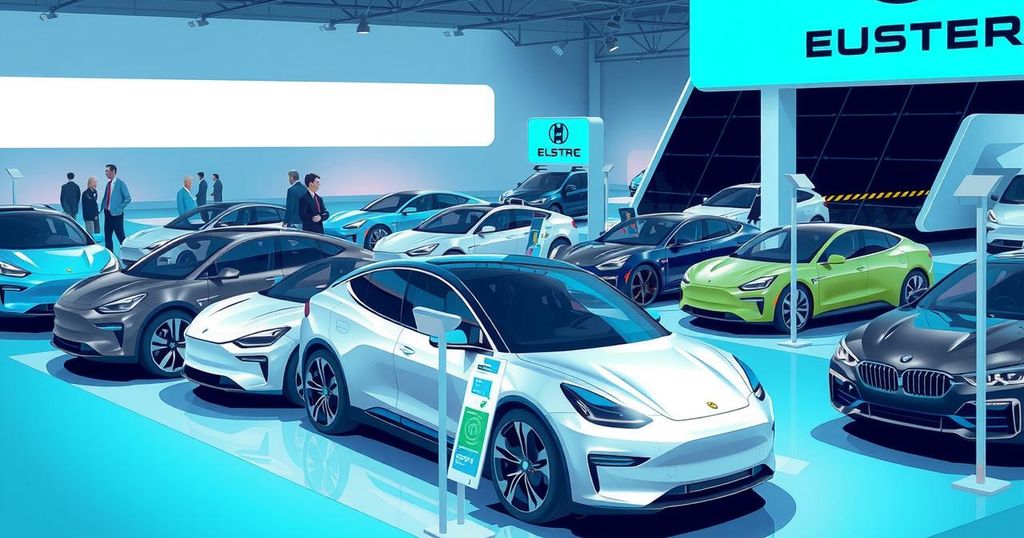Cars
ACQUISITION, AP, ASIA, AUTOMOTIVE, AUTOMOTIVE INDUSTRY, BEIJING, BRAZIL, BYD, CHINA, EUROPE, EUROPE/ASIA, GREAT WALL MOTORS, HAVAL, HEBEI, INVESTMENT, INVESTMENTS, JACK WE, JACK WEY, MEXICO, NORTH AMERICA, ORA, RUSSIA, SHANGHAI, SOUTH AMERICA, TANK, THAILAND, TURKEY, UKRAINE, WEI, WEI JIANJUN
Oliver Grayson
0 Comments
China’s EV Makers: Strategic Global Expansion Amidst Domestic Competition
Chinese automakers are accelerating their global expansion by offering affordable and tech-savvy electric vehicles. Key players like BYD, Great Wall, Geely, and Chery are exploring international markets to overcome domestic competition challenges. These firms leverage strategic acquisitions and innovative technologies, reshaping the global EV landscape.
The global automotive industry is experiencing significant transformation due to the rapid expansion of Chinese electric vehicle (EV) makers, who are introducing affordably priced EVs characterized by advanced designs and technology. Prominent companies such as BYD, Great Wall, Geely, and Chery Automobile are expanding internationally to secure a competitive edge as they navigate the challenges of their domestic market. Unlike state-owned enterprises such as SAIC, these companies are privately held and focus on innovative production strategies.
Great Wall Motors, which produces brands like Haval and Ora, is targeting overseas markets to offset a nearly 15% decline in domestic sales, despite an increase of over 80% in net profit last year. To facilitate this transition, Great Wall has acquired factories from other automakers, including those in Brazil and Thailand. Chairman Wei Jianjun highlighted the importance of volume in production to control costs, emphasizing the company’s role as a leader in pickups and SUVs, alongside their EV joint venture with BMW.
Chery Automobile, recognized as the first Chinese carmaker to export vehicles, has successfully sold over 15 million units globally, focusing on developing regions such as Turkey and Ukraine. It aims to boost exports to 3 million vehicles by 2025 and is following an aggressive expansion strategy with new factories in Russia and Spain. While predominantly a fuel-engine manufacturer, Chery is making strides in the EV market through collaborations with companies such as Huawei and efforts to penetrate North America.
BYD has surpassed Tesla in total EV production, selling 3.52 million vehicles in China, marking a 28% year-on-year increase. The company’s stronghold in plug-in hybrids is complemented by a new ultra-fast charging system capable of charging vehicles in approximately five to eight minutes. With lower-priced models like the Seagull available at around $12,000, BYD caters to a diverse market. The company is making substantial investments in charging infrastructure to enhance convenience for its customers.
Geely Auto, known for strategic acquisitions like Volvo and partnerships with international brands, has extended its reach globally with the recent launch of the Geely EX5 SUV in Australia and New Zealand. Geely also owns Zeekr, a premium EV brand, and has stakes in various international automotive ventures. Despite facing challenges in the U.S. market, the company continues to pursue its global aspirations.
In addition to these major players, China’s second-best-selling EV brand, Wuling, has captured a market share of 6% with over 673,000 units sold. Other notable manufacturers include Nio, Xpeng, Li Auto, and Leap Motor. While state-owned entities are also venturing into global markets, the competitive landscape remains intense, prompting many companies to prioritize international expansion.
In summary, Chinese EV makers are re-shaping the automotive industry by aggressively expanding their global footprint. Companies such as Great Wall, BYD, Chery, and Geely exemplify this trend, employing innovative strategies to enhance production and reach new markets. As competition intensifies in the domestic arena, these firms are well-positioned to influence the future of electric vehicles worldwide, catering to diverse consumer needs and preferences.
Original Source: www.usnews.com




Post Comment